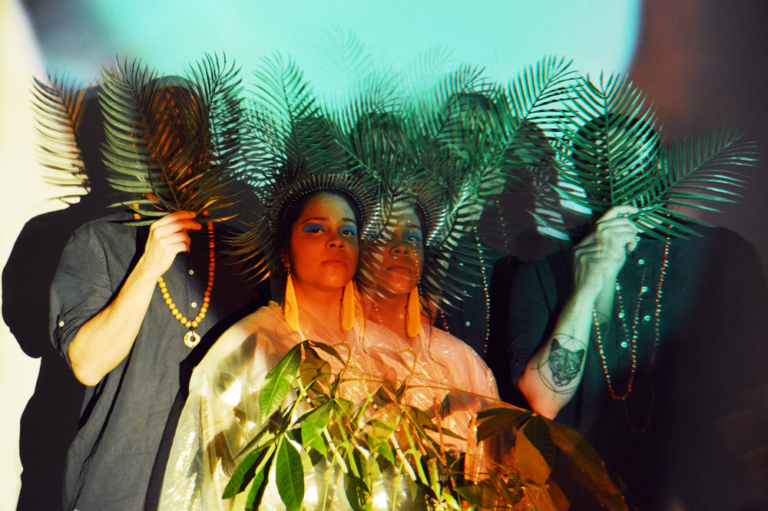While many of us are suffering from over-stimulation during this information age, the access to knowledge has helped others connect to a past otherwise disconnected from present existence. Particularly in the case of those Latin New York transplants that make up the Colombian psychedelic band, Combo Chimbita. After years of honing their skills and voices, they have been able to dive profoundly into the roots of their culture the best way they know how: through music.
Artists have long-since been considered vessels, pushing forth a spiritual experience through their work, and with Combo Chimbita, you witness this phenomenon in full force. In 2016, the quartet released their debut El Corredor del Jaguar EP, bringing to life an awakening of the Colombian spirit that was entirely unmissable by platforms like NPR.
With complex layers of live, funk-fueled instrumentals on a bed of electronic foundations, the music fits a similar cosmic mold of jamtronica acts like Beats Antique and Quantic. Pair that with a heavy shower of folkloric harmonies, chanting, and powerful guacharaca rhythms–all emblazoned by front-woman, Carolina Oliveros’ soulful vocals, and you’re called to action whether you speak Spanish or not. The result is a mesmerizing experience, as if we stumbled upon an ancient ritual for the gods driven by the divine feminine.
Last year, Combo Chimbita released their second EP, Ahomale, inspired by a Yoruba term meaning “adorer of ancestors.” Listeners can see a distinct trajectory from the more introductory sound in El Corredor, to a deeper, more storytelling-focused message in Ahomale. A graduation to a higher level of mystique and profundity for both artist and fans.
The most beautiful thing to note is that Combo Chimbita’s story of Colombian-born, now American residents searching for a connection to their first home and finding music as its primary bridge, could not be relevant–or relatable–today. These aren’t musicians who know what they want and specialize in one specific thing. They’re explorers, hacking through their own cultural journeys with musical instruments as machetes. They’re proving that no matter how far away you might venture from your roots, they’ll always be a part of you, searching for a vessel from which to grow and touch the world.


